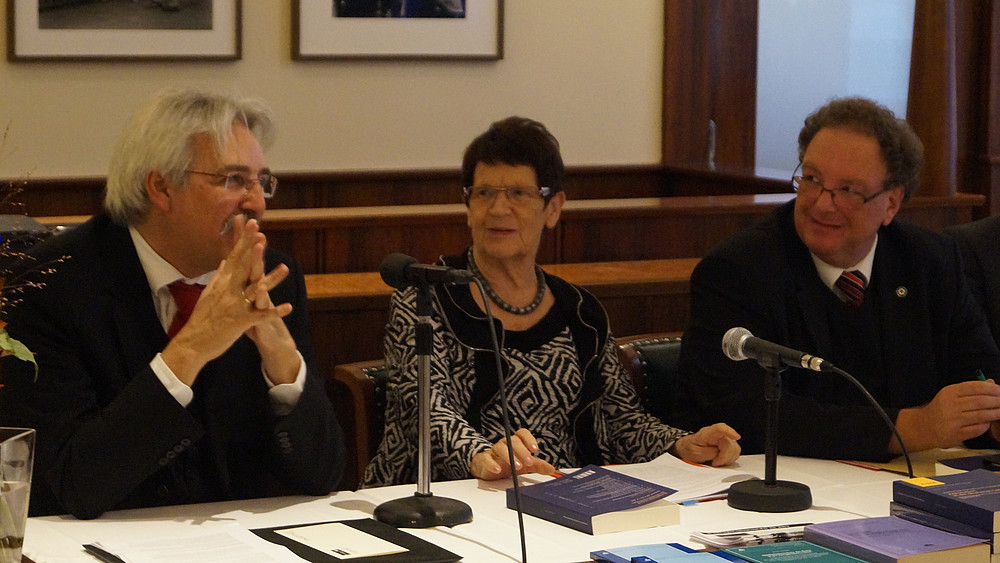Rita Süssmuth and the German Cultural Council present a new study on the integration of migrants by Professor Vogt.

On October 6, 2016, former Bundestag President Rita Süssmuth and Olaf Zimmermann, Managing Director of the German Cultural Council, presented the study "Ankommen in der deutschen Lebenswelt. Migrant Enculturation and Regional Resilience in the One World " together with the main author of the study, Matthias Theodor Vogt. The cultural policy researcher is a professor at the Faculty of Managerial and Cultural Studies at Zittau/Görlitz University of Applied Sciences and heads the Institute for Cultural Infrastructure Saxony.
Focus on potential and difficulties
The "we" in Angela Merkel's "We can do it!" has a dual focus: the host society and the people being welcomed. "Arriving in the German environment. Migrant Enculturation and Regional Resilience in One World" is the first study in Germany to examine the potentials and difficulties of cultural appropriation in the integration process, focusing on both groups.
The Russian Gerasimov Doctrine aims to disintegrate a society. (It was published by the General Staff of the armed forces a year before the occupation of Crimea and then implemented almost one-to-one in Crimea). The study quotes Gerassimov and then asks the reverse question: What form of culture-based policy is capable of counteracting the disintegration of German society? Can "imaginary worlds" be modeled in favor of social cohesion? Why is culture-based policy not used for both: for the proactive integration of migrants and for internal integration?
Deficits and recommendations for action
In the political upheavals of the so-called 'refugee crisis', structural weaknesses of the German state became more visible. The reader will find a variety of perspectives and arguments that go far beyond the previous immigration debate and show the considerable lack of theory and data on cultural appropriation processes.
A series of recommendations for action show how integration can work, how mental or spatial ghettoization can be avoided and how greater cohesion of German society can be achieved.
In his epilogue, Olaf Zimmermann assesses: "With his book, Vogt provides an impressive collection of material that has arisen from current requirements, but reaches far beyond them. This book has the potential to become a standard work, as it provides an overview of the various academic approaches to describing cultural integration by bringing together different disciplines."
The study will be published in parallel as a double volume 1-2 2016 of the European Journal for Minority Issues and as a book by Berliner Wissenschafts-Verlag.
You can download Prof. Vogt's speech and an excerpt from the study here.